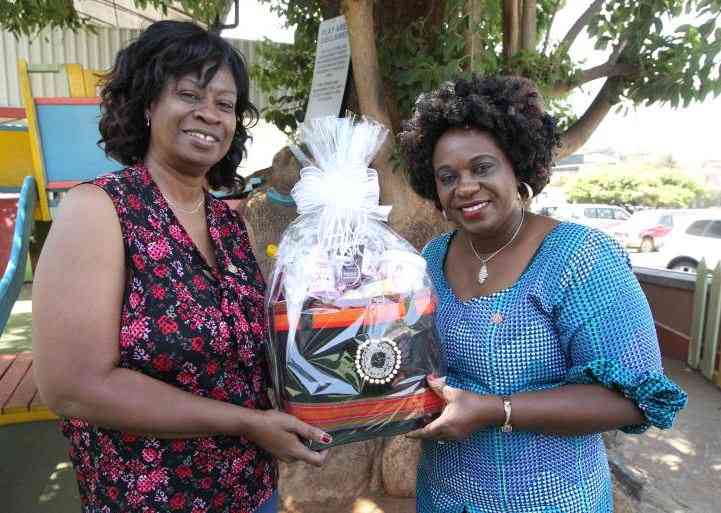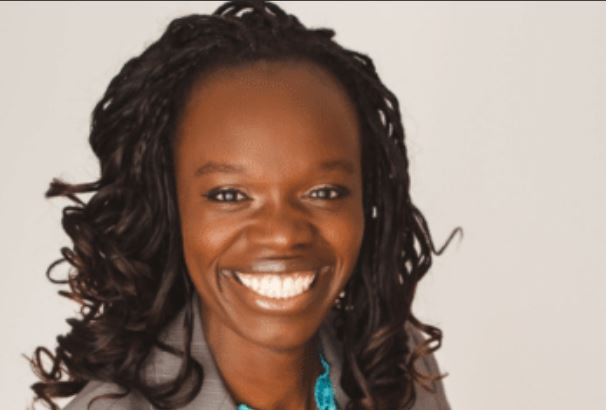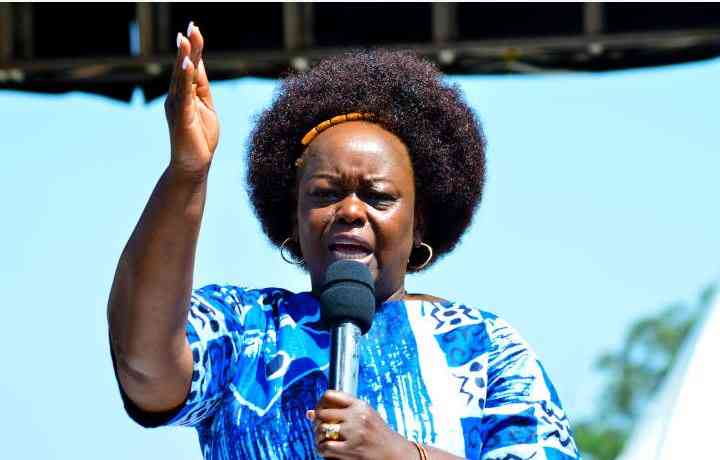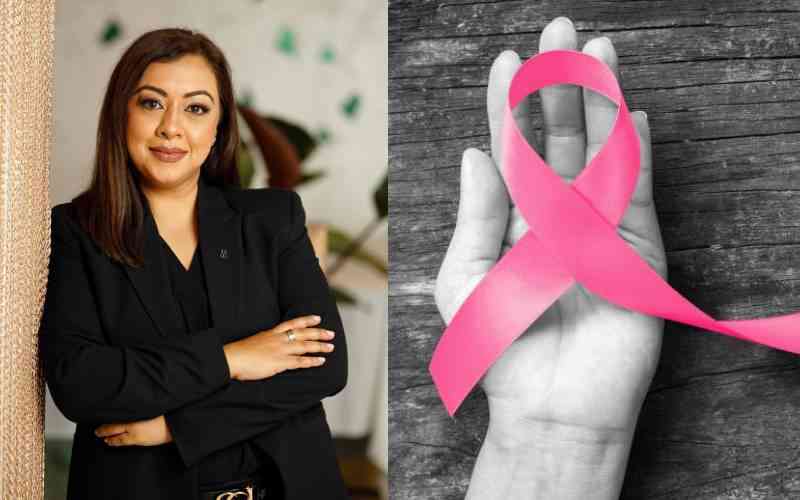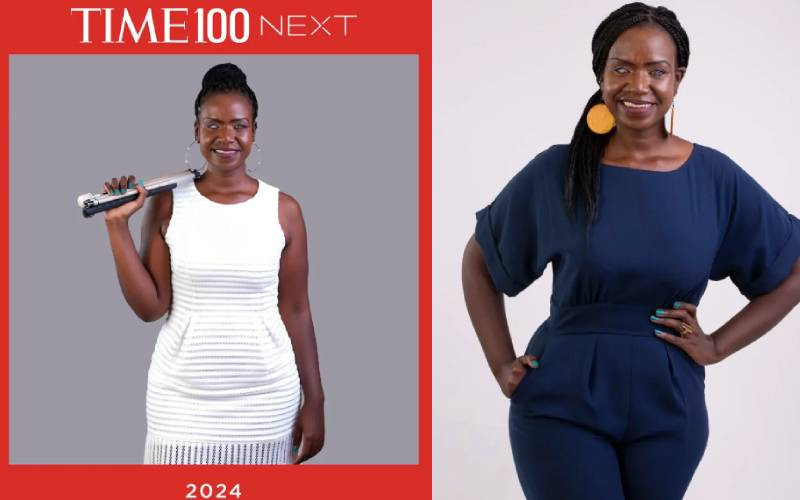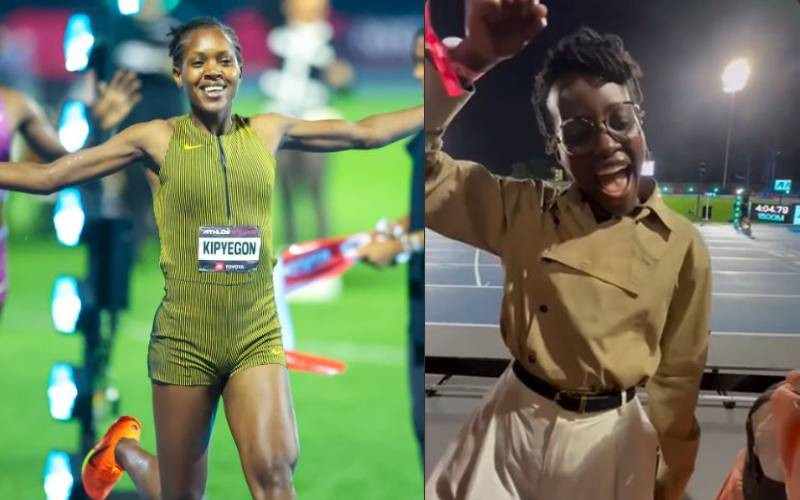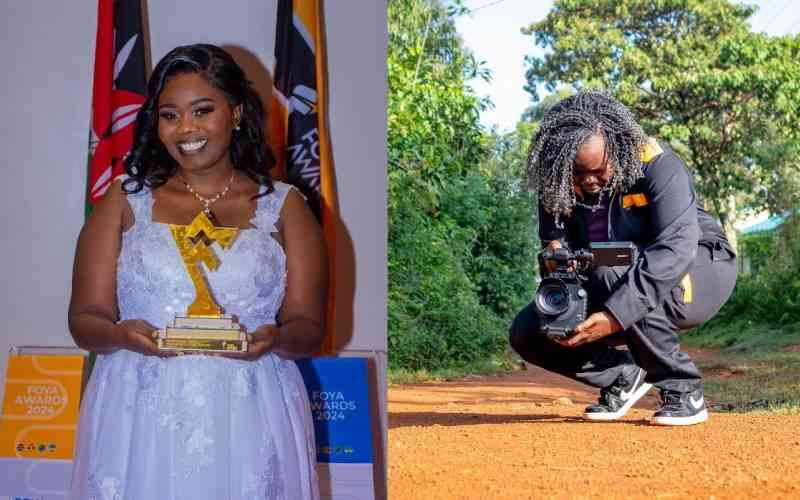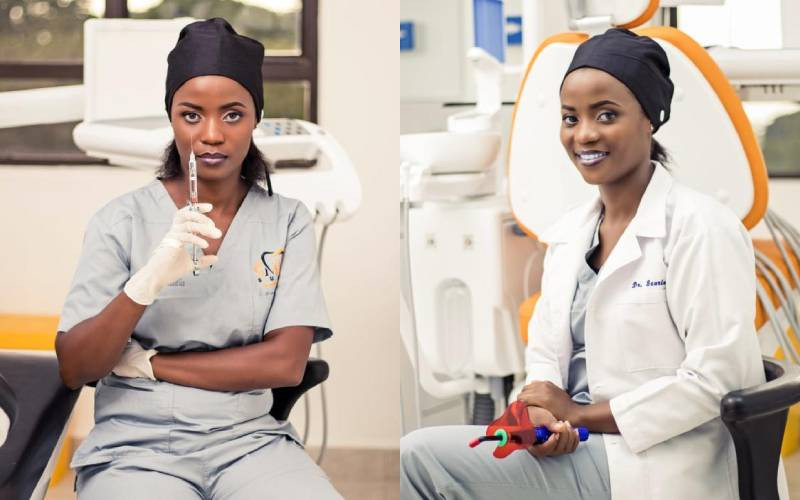
When we celebrate women in leadership, we often think of corporate CEOs or political leaders, rarely shining the light on women leaders much closer to our daily lives.
Winnie Makena speaks to four women who are blazing the trails in their fields to find out what it takes to make an impact and stay relevant
Behind the scenes of boardrooms and political arenas, women are daring to reach heights that very few have attained, in entrepreneurship and particularly in the more male-dominated industries. These women show us that you can be a leader in whatever field you are in.

Dr Yemisi Akinbobola, co-founder of African Women in Media (AWiM), speaks about overcoming racial and gender biases to earn a seat at the ‘global media table’
I am a proud African from Nigeria but have lived in the UK for the majority of my life. I registered AWiM initially as a Facebook group back in 2016 because, prior to that, for four years, I had run an online news organisation called IQ4News. It is the organisation I was working for when I won the CNN African Journalist Award in 2016.
Up until that point, I had not seen my experiences from a gender lens, but I should have. For instance my name, because I have a PhD, is Dr Yemisi and not Mrs or Ms and when I sent e-mails to people introducing my website, most people would instantly assume I am a man.
As soon as I corrected them, I could always feel that shift in tone and deals that were almost done would be dropped. Having the title ‘Dr’ in my name gave me access to people who would never give me a chance, but my mentor mentioned to me that people will always look at me as a woman who just had children and think ‘how will she manage’ yet I am managing just fine.
When I left IQ4News and went back to full time academia (as a senior lecturer at Birmingham City University), I spent time reflecting on my experiences. I wanted to create a real impact. I did a lot of research for over two years and, particularly in America, I came across a lot of groups of women in content production. It wasn’t until I travelled to Johannesburg, South Africa to receive the CNN award that the idea struck me. We had a forum and the main conversation was, ‘Where are the women in media’? That very evening, in the hotel room, I put up the business plan for AWiM and I knew that, the next year, we would have a conference for AWiM.
AWiM is an international NGO whose primary aim is impacting positively how media functions in relation to women both as subjects of stories and producers of media content. Apart from AWim, I also consult for the United Nations and run two podcasts where I interview various women activists like my latest interview with Madam Bineta Diop
What it takes
Being an African woman in the UK, racial bias is almost a given. I have had to work four times as much as everybody else to get half of the recognition. You have to over prove yourself constantly. When I travelled to Addis Ababa doing some work with the AU, my expertise was highly valued. Coming back to the UK, I almost felt invisible, like I have to sell myself.
I am also a mother of three girls and, luckily, I have a supportive husband who does not subscribe to gender roles. But the kids somehow always come to their mother. I was in a conference where I had five minutes to speak among high level people about an international topic. My three-year-old came into my room and said ‘I wanna cuddle’. I had no choice but to put her on my lap.
Luckily, the moderator was quite accommodating and it reinforced the ideas that you have to be around people who understand the dynamics of being a woman and not put you down. Organisations need to put mechanisms in place to make sure you don’t have to deal with some of these gender biases.
Advice for the next generation of female leaders
Gender equality is not just starting. We are hundreds of years into it and the job is not done yet so do not think there are limits. Be empowered that the road is much easier than before and remember that when you are discriminated against, it is never your fault, it is their own bias. Be strong-minded and build your resilience. They do not diminish who you are. There is nothing in my business I cannot do but I am beginning to appreciate the benefit of building the capacity of others to come do the work. It is important as a woman to nurture other women to be the future CEOs of our companies.

Nzambi Matee is a 29-year-old geophysics and material science graduate who, despite skepticism from men and women alike, built a machine turns plastic waste into building blocks
I did my Bachelor of Science in Physics at Jomo Kenyatta University of Agriculture and Technology where my major was geophysics and my minor was material science. After I graduated, I got an internship at National Oil Corporation of Kenya as a data analyst.
I was busy analysing data for two years until I realised I wanted something different. I started thinking about my passions and how I have always wanted to work in the sustainability and environmental space. Realising that I am more of a science and research type than the activist type I wanted to find a solution that can directly impact the environment while still being economical.
In my experience, if a project does not make a social and economic impact, then it doesn’t make much sense. That is how I started to do research and development in 2016. In November of that year, I quit my job to figure out what to do.
I dropped everything because the feeling of wanting to pursue your dream or purpose is always stronger than the fear of not making it. I was also lucky that, having put all my savings in research and development, I could rely on my family for upkeep and a home.
With all my eggs in one basket, I joined a hackathon in 2017. That’s where I came up with the idea for Gjenge but, because we were not generating income, my original team of five all fell through. I was left alone to work on the project.
The original concept was collecting plastic waste, sorting and selling to recyclers, where we would collect from households and give them incentives through a mobile platform. A little too late, we realized a lot of logistical issues and by then I had collected around 300 kilogrammes of plastic and stored it in my mum’s back yard.
By August I had my first prototype which was really bad but I loved it so much because it proved the concept. I rebranded from ‘Gjenge Enterprise’ to ‘Gjenge Makers’ and moved from collection to being manufacturers.
In 2018, I got a scholarship to study social entrepreneurship but also do a prototype test at the University of Colorado. I went with my prototype and refined it there for almost a whole year. I also prototype the machinery and did the costing and business plan then moved to fundraising. The university was instrumental and helped me to get a grant which was sufficient to come back to Kenya and establish the workshop we have.
We then started making the machine with my team. I had figured out how to make one brick but now I needed to make a thousand to create the business. We officially launched the product in the market in 2020 after getting certified. We grew from three people to now a team of ten. We started in May, in the height of Covid, and grew from the ground up with an interesting resilience. We needed to work with limitations like less working hours because of curfew and working in the new norm only made us more resilient.
What it takes
I believe challenges just build your character. Being an engineer and trying to launch a product in the manufacturing space which is essentially a ‘Big Boys Club’ is nerve wrecking and quite difficult. Especially saying you will build the machine instead of sourcing from China. Everyone doubted my abilities including women. Building the machine lowered the cost as well as its maintenance. Our machine is 65 per cent efficient compared to a China made alternative which is 80 per cent efficient and that has been a huge motivator for me.
Being a solo woman founder can take a toll on you emotionally. I had to cut down salaries of some of my workers yet still from May to the end of the year I only paid myself twice. I had to choose between my team and I. So I considered their situation having a family and rent so they took priority.
Advice for the next generation of female leaders
My friend who taught me how to ride a motorcycle told me before you learn to ride, ‘Toa woga tupa kwa loo na uflash’ (Take your fear, throw it in the loo and flash). That is my advice to women. There is a lot of fear of the unknown especially for new entrepreneurs. The fear can cripple you or you can rise above it.
In my experience, women naturally tend to water-down their achievements and accentuate their failures. In my daily interaction I talk to more men and they really talk about their experiences like it’s the bee’s knees. Even if you do something as small a cooking ugali, go with pride knowing you have learnt something new.

Eng Millicent Alooh Angara is a Biomedical Engineer who endured being turned down for opportunities because of her gender
When I was growing up, I wanted to go into medicine or engineering. The latter carried the day. I quickly grabbed the opportunity to pursue Medical Engineering as a career since it entails both.
For the past 10 years, I have practiced Biomedical Engineering in different major private hospitals in the country. I am currently the Head of Biomedical and Engineering maintenance department at MP Shah. I also serve as the national Secretary General as appointed by the Association of Medical Engineering of Kenya (AMEK).
What it takes
As a woman, I have learnt that, a number of times, people don’t believe in you at first sight. You have to prove yourself beyond reasonable doubt otherwise they will always seek a second opinion to ascertain your point.
One time in one of the hospitals where I worked, I received a call that one of the machines, the Diathermy unit, had failed in the theatre during a procedure. I rushed in to assist but, to my disappointment, I was received by resistance from the surgeon who insisted he needed a professional biomedical engineer and not me.
I had to explain my lungs out that I am the one, and he reluctantly allowed me to sort the machine which I did, in record time. He later told me he was expecting a man and not a woman but, in the end, thanked me for rescuing the situation.
Another time, I went for an interview at one of the institutions. I was highly qualified for the position, but I was not picked. Later, someone informed me that I was qualified enough for the job but, because I was a woman, they preferred to go with a male candidate. It is little biases like these that hinder women from reaching the top of their careers and getting the recognition they deserve but we fight them every day.
Let’s give women favourable environments to work since like it is constantly pointed out, women have a lot to handle from children to their spouses, to managing their homes and attending women groups. By a favorable environment, I mean supporting women as we would any other person without looking down upon their capabilities. As the saying goes, what men can do, women can do better.
Advice for the next generation of female leaders
Let’s all maximise our potential. There’s too much potential bestowed to us by God, and we have to use it. Just believe in yourself.

Ms Beth Mbuitu, CEO, Association of Matatu Operators (AMO), a nurse by profession who is working to empower women in the public transport industry
God sometimes pushes you to make that step needed to change your life. I resigned as a nurse in 2013 after practicing for almost five years, first in Mombasa and later in St Francis, Kasarani. At the point when I quit my job, I was studying towards a degree in Human Resources. Being the only girl in my family, my father had pushed me to be a professional career woman and I was not feeling my career at the time. My daughter was three years old but I took the plunge anyway. Two months later I met my would-be boss who mentored me into the transport business. He pushed me to understand the ropes seeing as the shift was massive -- from nursing to transport.
I started as a secretary in a transport firm called TelAviv that now has a fleet of more than 300 vehicles. As the company grew, I also grew with it. During the 2017 elections, my mentor and now boss, was vying for an electoral seat which he later let go of. It is after this that he came up with the Association of Matatu Operators.
Because of the protocol involved in making the association, I was appointed to hold the CEO position. The position was by merit and, at first, I was not sure how I would do it. I am the youngest on the board and I have to make tough decisions daily and instruct men much older than me, which is no easy feat.
After becoming CEO, we came up with the idea to empower female workers in the transport sector. They are few but they don’t have a voice. Just like in the house where women are asked not to talk louder than the man, in the workplace, women have adapted that same mindset and shy away from taking what belongs to them.
Zeal Women’s Initiative was born from this eagerness to help them make their voices heard. My vision for Zeal is great. We hope to have a sacco that is fully managed by women or even have a route fully run from driver to conductor by women.
Such cases like passengers being thrown out of vehicles or rape or sexual assault happening inside PSV vehicles should be unheard of. Having more women in these spaces is a sure way of ensuring less gender based incidents.
What it takes
People ask me irrelevant and improper questions like whether I am married. Men would ignore my instructions yet I had to deliver the work irrespective of the affronts. Another that that many women in leadership can attest to is the perception that you cannot make it to the top without sleeping your way there. Men tell it to your face in snide remarks. I find it quite offensive knowing myself and my values and discipline.
Advice for the next generation of female leaders
Women tend to shy away from difficult things. I am a risk taker and I believe you cannot achieve anything great without taking chances. I recently started a security firm. If I chose to continue being a nurse, I would be so poor now. Transport has fed me, bought me a car and built my house. If I can do this, why not any other woman? I have travelled a lot in this position. In China and Japan, the transport industry is dominated by women. They make up most of the drivers and even factories are female dominated. If they can do it, we can too.
 The Standard Group Plc is a multi-media organization with investments in media platforms spanning newspaper print
operations, television, radio broadcasting, digital and online services. The Standard Group is recognized as a
leading multi-media house in Kenya with a key influence in matters of national and international interest.
The Standard Group Plc is a multi-media organization with investments in media platforms spanning newspaper print
operations, television, radio broadcasting, digital and online services. The Standard Group is recognized as a
leading multi-media house in Kenya with a key influence in matters of national and international interest.

